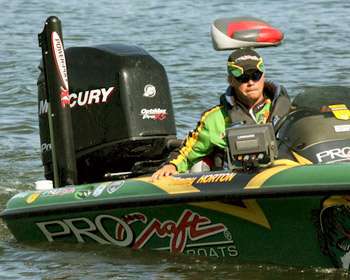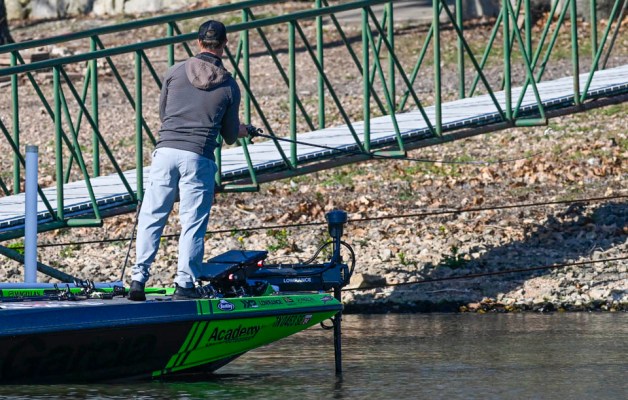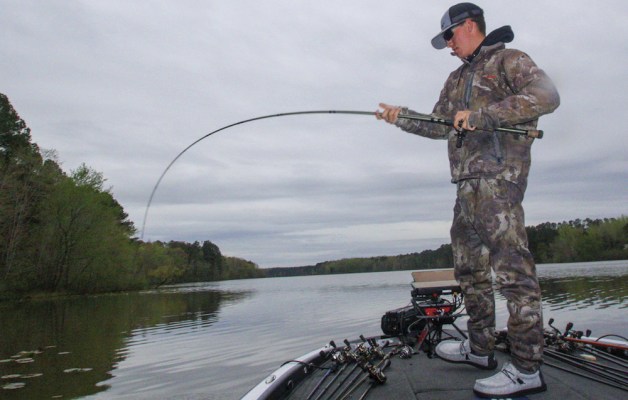
One of the oldest clichés in the tournament fisherman's book is "start early and stay late."
When it comes to practicing for Elite Series events, it's one that veteran Alabama pro Tim Horton usually adheres to. After all, there's no substitute for time on the water. That's particularly true at the highest levels of competition, where it often takes multiple spots and multiple patterns to locate four days' worth of fish.
But Horton also thinks that there are certain times when it pays to come off the water early. In fact, he's even done it on a tournament day. When he won the Elite Series event on Lake Champlain in 2007, he was so convinced that he had the winning limit in his boat early the last day — and concerned about possible rough seas — that he was back at the dock chomping on a delivery pizza shortly after 10 a.m.
That exception to the general rule of making every minute count occurred when he was fairly certain that the trophy was in the bag. How do you know when to come in early before the tournament even starts?
"I almost always do it on big bodies of water," he says. "Especially on the Great Lakes, you want to take time to make sure that everything is working properly — your bilge pumps, your livewells, your trolling motor. And you want to make sure that your motor mounts are tight."
Even if an angler's equipment is solid, he has to take steps to protect his own physical well-being, too. For example, last year at Lake Erie, Horton got sick from practicing in 8- to 10-foot swells and retreated to the dock by 10 a.m. "I made the Top 20 in that one," he says. "A lot of guys got fatigued and didn't do as well. If I had pushed it, it would have hurt me." Mental health is also critical: "If the weather gets so bad that you get a negative attitude, it's better to come off the water and not get discouraged."
He also cautioned that sometimes, "if you're very confident in your pattern, coming off early clears your mind. If you stay out too long, something could distract you."
Sometimes an early visit to the ramp is a matter of gamesmanship. For Horton this is often the case when he fishes a tournament on one of the TVA lakes where he guided in the past and is generally regarded as an expert. "You don't want to look at too many places on your home bodies of water," he says. "The other competitors may see where you are."
No matter what your reason, he says that an early return to the hotel does not give a fisherman an excuse to watch SportsCenter or play cards. "There's very seldom time to relax," he emphasized. "I'm usually doing something with my tackle or checking my GPS or my battery connections. My pet peeve is when things are out of order in my boat, so coming off the water early really gives me time to organize my tackle. When we have back-to-back tournaments, that's a good time to take some time out to get things back in place."
Despite all these exceptions to the rule, Horton acknowledges that the days he doesn't push his practice session until the last possible minute are few and far between. He's not afraid to give up a little time when there's a valid reason to do so, but more often than not that time is best spent trying to figure out his prey just a little bit better.
(Provided exclusively to BASS Insider by Z3 Media)





